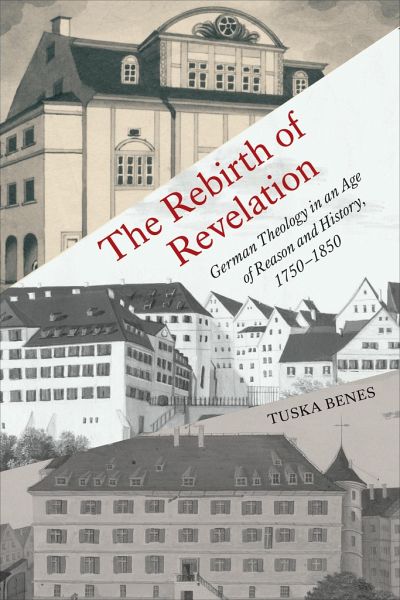
The Rebirth of Revelation
German Theology in an Age of Reason and History, 1750-1850
Versandkostenfrei!
Versandfertig in über 4 Wochen
74,99 €
inkl. MwSt.

PAYBACK Punkte
37 °P sammeln!
The Rebirth of Revelation explores the different and important ways religious thinkers across Protestantism, Catholicism, and Judaism modernized the concept of revelation from 1750 to 1850.


